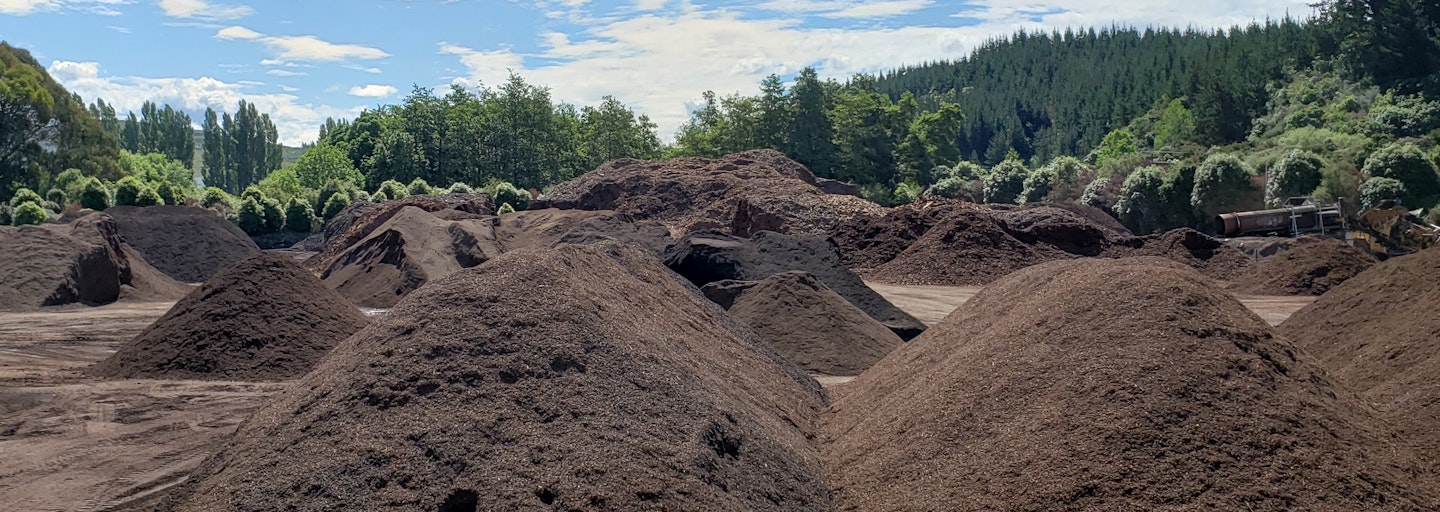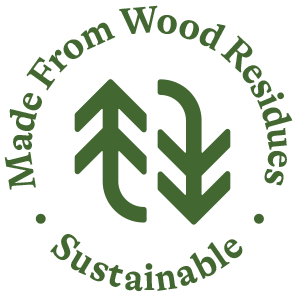What is Azwood® compost made of?
Understanding the essential elements that enrich your soils. Discover how we're creating nourishing composts & soil conditioners for healthier growing environments.
Have you been wondering what ingredients go into our compost range and what makes up a good compost?
Our approach is all about repurposing natural waste and diverting it from landfills to enhance soil and crops. We team up with many local businesses to turn their waste into nutritious compost and soil conditioners that help nurture soil health. Each element adds important value to the mix.
What goes into Azwood® compost
Our compost is crafted from a range of natural materials sourced from many local industries that were after a sustainable way to get rid of their waste.
Sawdust, bark debris and slash - from the forestry industry
Clean green waste - from our green waste drop-off service
Animal waste by-products - From the agricultural industry
Marine waste by-products - from the aquaculture and food production industry
Fungi - from the horticultural industry
Ash and biochar - from the commercial wood fuel industry
The natural nature of our compost range
Compost is created using natural materials and organic elements so every batch is unique. This is due to factors like weather, temperature changes and raw material sources.
To maintain quality and consistency, we implement input procedures, strict process guidelines and quality controls. This ensures that while every compost batch is different, they have the correct balance of carbon and nitrogen (C:N ratio) and appropriate nutrient levels.
Learn more about Azwod's compost range and soil health by downloading our free guide, The horticulturists guide to soil health.
What these by-products provide our compost
Every waste product we repurpose brings with it varying nutrients and elements that contribute to the composition of our compost.
Sawdust, bark debris and slash
Clean green waste
Animal waste by-products
Marine waste by-products
Fungi
Ash/biochar
What are the specific benefits of each element
When it comes to sustainable soil enrichment, the mix of various nutrients and elements within compost plays an important role in nurturing our plants and increasing organic matter in our soils.
Each component, whether it's nitrogen, potassium, phosphorus, or any other vital element, contributes its unique properties to improve soil health. Below we outline their effects when integrated into compost and uncover the benefits that collectively enhance soil structure, nutrient availability, microbial activity, and overall plant vitality.
Boron
Regulates the movement of sugars within plants and is important to cell division and seed development.
Calcium
Helps plants build strong cell walls for protection.
Carbon
Contributes to improved soil structure, nutrient cycling and water retention.
Iron
Essential for photosynthesis and the creation of chlorophyll. Influences both yield and nutritional quality.
Magnesium
Magnesium is vital for the chlorophyll molecule within plant tissue. When there's not enough magnesium (Mg), it causes a shortage of chlorophyll, which leads to weak and stunted plant growth.
Nitrogen
Nitrogen is vital for plant growth, metabolism, and chlorophyll creation. Insufficient nitrogen leads to stunted growth and reduced food production, evident in yellowing leaves.
Phosphorus
Essential for cell division and development of the plant.
Potassium
Helps with persistence through the winter, increases root growth and improves drought resistance.
Protein
Affects the soil's capacity to retain and release nitrogen and make it available by mineralization during the growing season
Zinc
Zinc is essential for plant metabolism, enzyme function, and ion transport. Inadequate availability results in a significant loss in production.
The importance of carbon
Carbon in soil is important for horticulturists as it enhances soil structure and nutrient availability, increases water storage and availability to plants, and protects soil from erosion.
Without carbon, soils would lack these vital properties, leading to poor drainage, reduced nutrient-holding capacity, and reduced microbial activity, ultimately impairing plant health and agricultural productivity.
The carbon-to-nitrogen (C/N) ratio is a huge factor that influences the efficiency of decomposition and the accessibility of nitrogen for plants. This ratio essentially acts as a timekeeper, determining the pace at which organic matter breaks down and nitrogen becomes accessible to plants.
When the C/N ratio is correct, it seamlessly breaks down and organic materials transform into valuable nutrients over time. During decomposition, the C/N ratio helps stimulate microbial activity to align with the growth requirements of plants.
What to put in your soil
What your soil needs depends on what it already has and what it is lacking. This can drastically change depending on your location and soil type. We recommend getting a soil consultant to assess your soil to gain an understanding of where you can improve. They will also be able to advise you on how much of each nutrient you need, which compost is best suited and how much compost to apply.
Here are a list of soil consultants that partner with Azwood®
Azwood® compost range
Related articles

Social media
More from Azwood
Follow us on social media to stay connected and be the first to hear our latest news.



